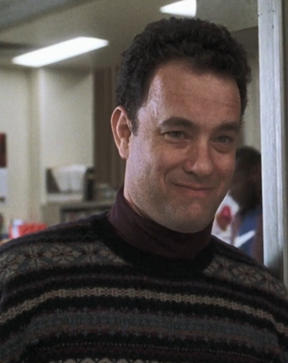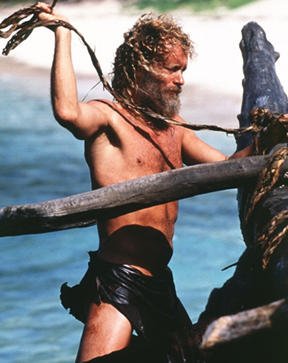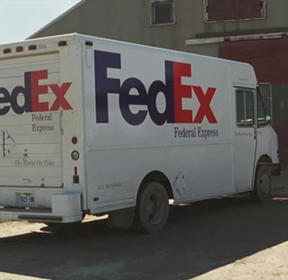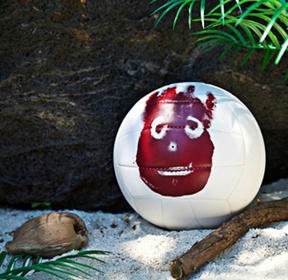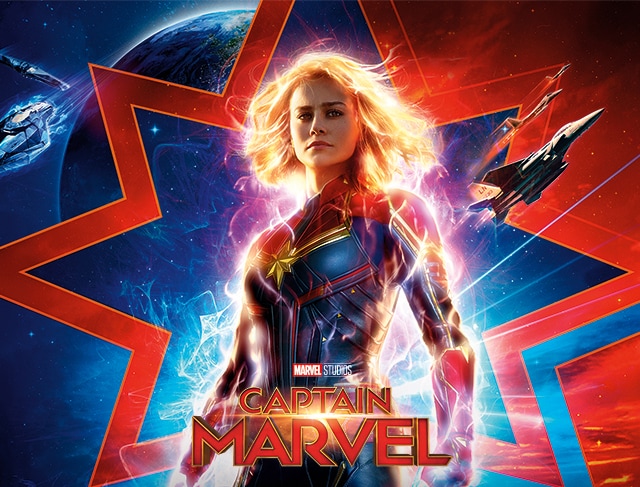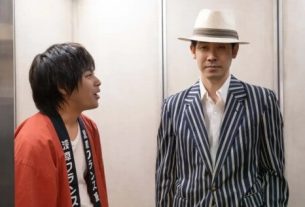On January 5, 2020, at the American Golden Globe Awards Ceremony, 64-year-old Tom Hanks won the Lifetime Achievement Award. And the last time he won the Golden Globe Best Male Lead was because of the “one-man show” in “Cast Away” 20 years ago.
Even if you are not an experienced movie fan, you will know the most unusual movie “Cast Away” in 2000.
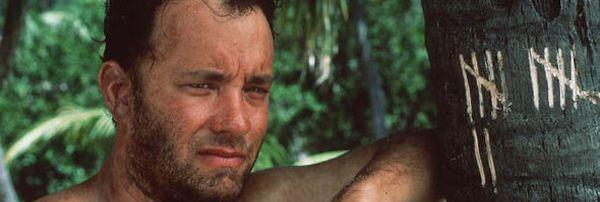
In 1719, the British writer Daniel Defoe’s “Robinson Crusoe” presented Robinson’s adventure on a deserted island.
This also allows people to see the super wisdom and energy exploded by human beings under the desperate situation of survival.
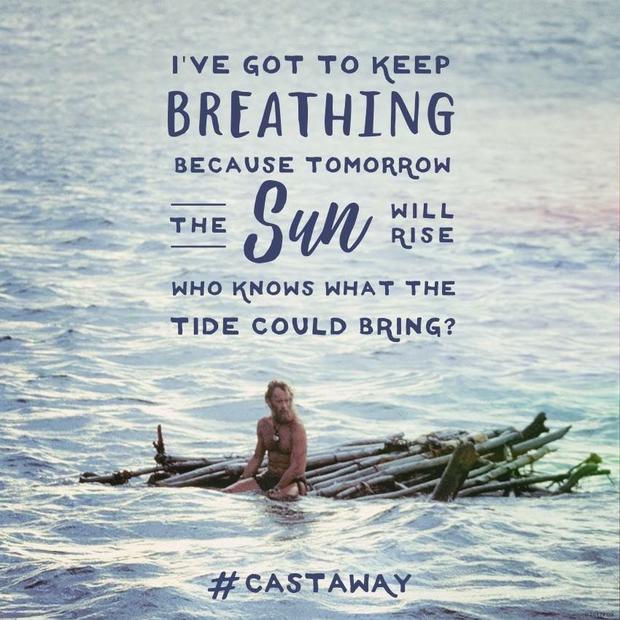
More than 200 years have passed, and the “Cast Away” at the beginning of the new century showed a modern version of the “Robinson” wild survival legend.
The interpretation of Tom Hanks Survival Alone runs through almost the entire film, and the one-man show that occupies two-thirds of the film makes people in the industry generally believe that he will harvest the third statuette.
Although it was not as predicted in the end (losing to Russell Ira Crowe of “Gladiator”), the golden ball was well deserved.
The story of the film stems from Hanks reading an article about FedEx, “A plane full of packages flies across the Pacific three times a day.”
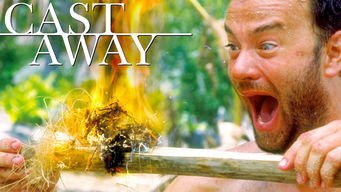
He envisioned “What will happen if the plane crashes in an accident?”
“In four years, what happens if there is no food, water, shelter, fire, and companions needed to survive on a desert island?”
He told the screenwriter William Broyles Jr of his simple idea (the two had collaborated in “Apollo 13” in 1995).
Surprisingly, “Cast Away” was originally conceived as a comedy. Hanks felt that a drifter on a tropical island might encounter many humorous scenes.
But over time, both Hanks and Broyles believe that these materials are more suitable for some adventurous theatrical interpretations.
So they decided to enrich the character of the protagonist Chuck Noland.
The birth of the script is full of adventures and sparks.
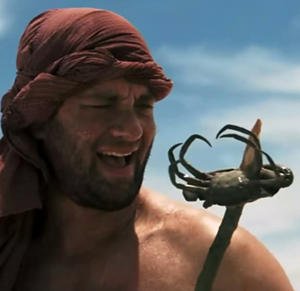
In order to describe the state of survival on the deserted island, the screenwriter Broyles went to the deserted and rocky Mexican beach for a 7-day trek to experience the characters in trouble.
He asked survival experts to test their survival ability, endure hunger, find shelter and food, and survive with the least available resources, just like Hanks’s role in the movie.
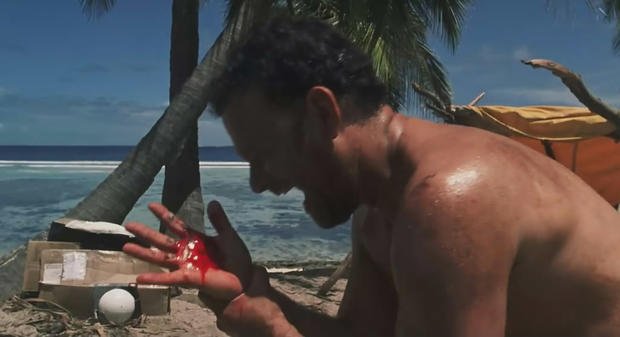
Attempts to smash the coconut and start a fire, but it took a long time to no avail, worse than the Hanks in the film.
The most unusual thing is that Broyles stumbled upon a Wilson volleyball floating in the sea, and accidentally discovered a key element of the script, which is the good friend “Wilson” who has lived with Hanks on the desert island for 4 years.
Broyles also wrote lines for Wilson (the stuntman read the lines to Hanks, making Hanks feel like he was talking to a real person), so that Chuck Noland could express his inner thoughts and emotions.
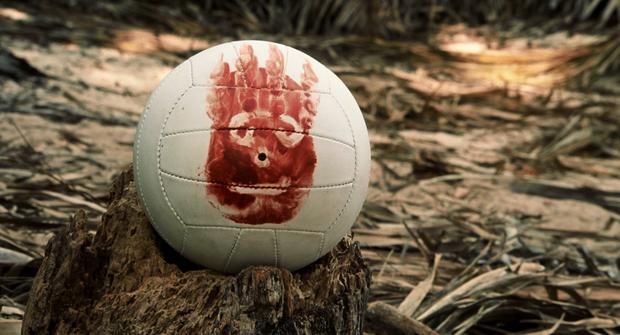
In an interview, Hanks stated that it took them 6 years to build a team to study the story of “Cast Away”.
As the film script took shape, director Robert Zemeckis joined the project.
Hanks and Robert Zemeckis have been in contact since they filmed “Forrest Gump” in 1994.
“Forrest Gump” cooperated with the director for the second time, hoping to continue the super glory of “Forrest Gump”.
Hanks and Robert Zemeckis collaborated for the second time
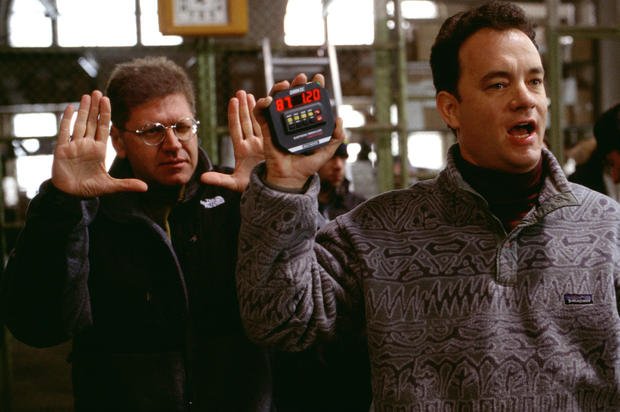
In order to truly show the difficult experience of survival on the deserted island and the passage of time, the filming method of this film is amazing.
The film was shot completely in accordance with the chronological sequence of the development of the story, and it took 16 months to stop filming for up to 1 year.
During this period, Robert Zemeckis led the same production team to shoot “What Lies Beneath”.
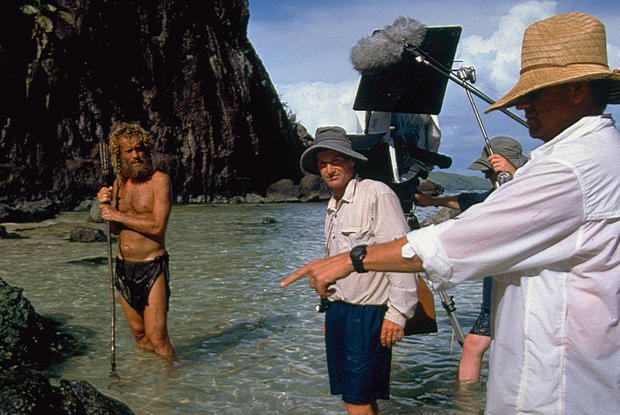
The reason for stopping shooting was to wait for Hanks to lose 55 pounds and grow long hair and beards to complete the transformation in appearance and the subtle transition of emotions.
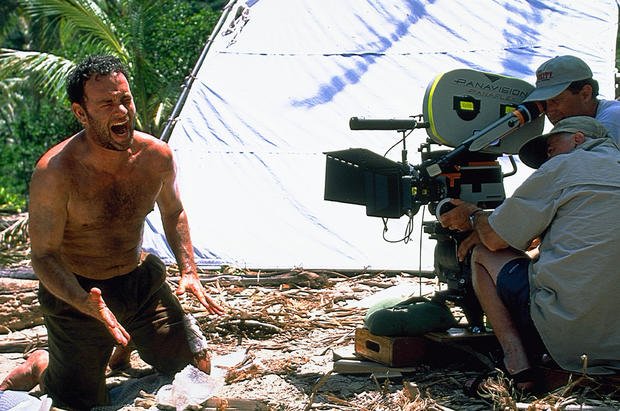
In order to show the physiological changes of the male protagonist, to achieve the best results.
Before the filming, Tom Hanks gained weight, did not exercise, and made himself look like a middle-aged man with out of shape.
When he arrived in the desert island scene, he became thinner for a while, showing the image of a speechless savage.
As Hanks’s real figure is presented, not the result of special makeup effects, this ancient image of hairy hair is widely circulated, and even becomes the endorsement photo of “barbaric savage”.
Not only did he gain weight and become thinner, but the scenes of being soaked in sea water for a long time also caused Hanks to suffer from severe joint disease.
For the role and the responsibility of the producer at the same time, Hanks really did it.
Fortunately, the film ended up with a cost of US$90 million and a box office record of US$429 million, which did not disappoint Hanks and his team.
It is worth mentioning that the soundtrack of this film was produced by director Robert Zemeckis’ old partner Alan Silvestri (the composer of the soundtrack for “Forrest Gump”).
In the film, when the male protagonist Noland is on a desert island, there is basically no soundtrack, nor the sound effects of natural creatures such as birdsong and insects. This is to enhance the character’s sense of isolation and helplessness.
It wasn’t until Noland broke through the huge waves and truly escaped from the desert island that the music slowly sounded with hope. This is undoubtedly a very wise choice.
In 2000, the popularity of “Cast Away” also became popular with two products that appeared in the film: FedEx and Wilson sports goods, and the filming location-a small island belonging to the Pacific island country of Fiji (becoming a tourist attraction) .
FedEx and Wilson Volleyball
In Monulliki, a Pacific island country of Fiji, Hanks wants to escape here, but when you set foot on it, you may not want to leave.
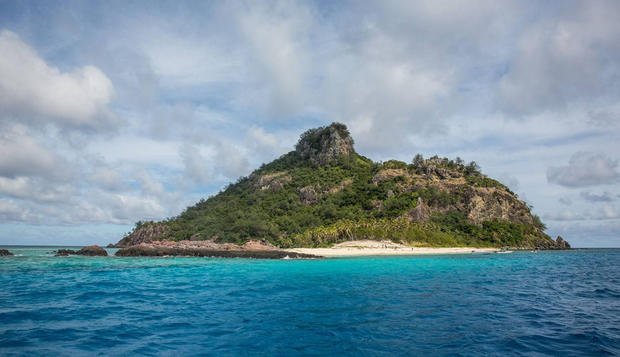
After watching this film, I know what the top advertising placement is.
It is like a FedEx commercial, a hymn to FedEx employees, and a global promotion of its quality and reputation.
After the film was released, FedEx’s brand awareness has been significantly improved in overseas markets such as Asia and Europe.
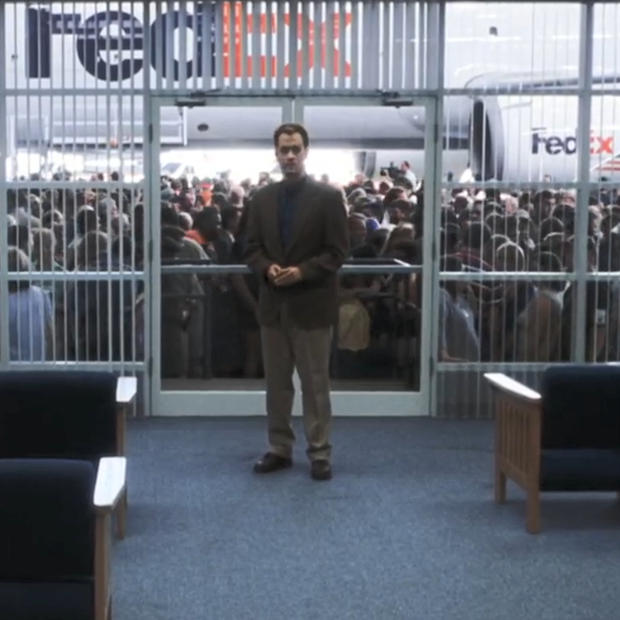
Hanks return from deserted island, filmed at FedEx headquarters in Memphis
However, contrary to popular belief, FedEx did not pay the producer a penny.
Director Zemeckis made this point clear in several interviews.
Although FedEx was very worried when they heard about the project, they had no objection to the completed script and provided support during the filming process.
FedEx has provided their facilities in Memphis, Los Angeles and Moscow, as well as aircraft, trucks, uniforms and logistics support.
In the film, FedEx CEO Fred Smith personally appeared in a scene welcoming Noland’s return, which was filmed at the FedEx headquarters in Memphis, Tennessee.
FedEx Advertising
During the 2003 Super Bowl game, the final scene of the movie appeared in a FedEx commercial.
In this version, Noland returns the package to the sender, and the woman signs for it at the door.
When Noland asked what was in the box, the woman replied, “There is only a satellite phone, GPS locator, fishing rod, water purifier and some seeds. It’s just something stupid.”
Netizens have said that if this scene appears in the movie, it will turn the whole movie into a comedy.
Another product in the film, Wilson volleyball, as the only companion in the years of drifting on the desert island of Hanks, has also become a hot brand.
One of the three volleyballs used in the movie was auctioned for $18,400.
In the film, Hanks was unable to save, heartbroken yelling “Wilson”, and it became one of the famous clips of the film.
As for where Wilson finally drifted in the film, what will its fate be?
Enthusiastic fans and friends have made many interesting sequels, including movies and animations, with their innocent brains, to miss and pay tribute to our friend “Wilson”.
In addition, the film’s popularity and lasting influence also inspired the creation of the popular American drama “Lost”.
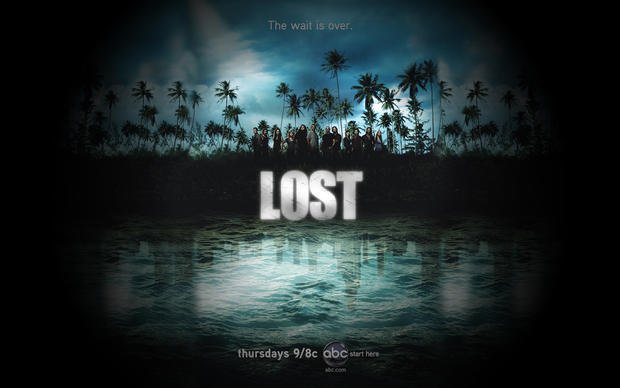
The sci-fi suspense drama series “Lost” launched in 2004-2010 (ABC Studios) was originally inspired by the popular reality show “Survivor” and the movie “Cast Away” at the time.
The play tells the story of a survivor after a flight from Sydney to Los Angeles crashed on a mysterious island in the South Pacific.
The overall story concept is basically similar to that of “Cast Away”, but it has enriched some details.
In the later stage, supernatural elements were added to give the island in the play a mysterious power, which can cure paralysis, cancer, and even bring people back to life.
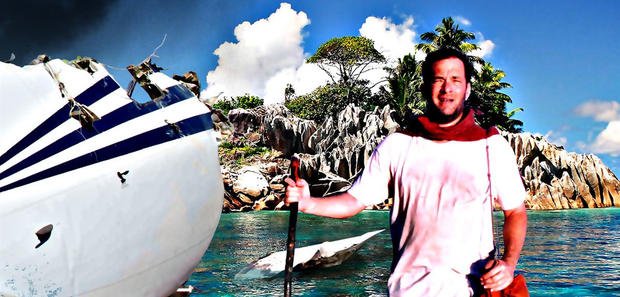
The influence of “Cast Away” goes far beyond this.
As an ordinary person’s adventure on a deserted island, it puts the individual in a desperate situation and presents a textbook-style survival guide.
It also expresses modern people’s various thinking about civilized society, the value of life, and the meaning of existence in the current era of increasingly advanced material and technology.
